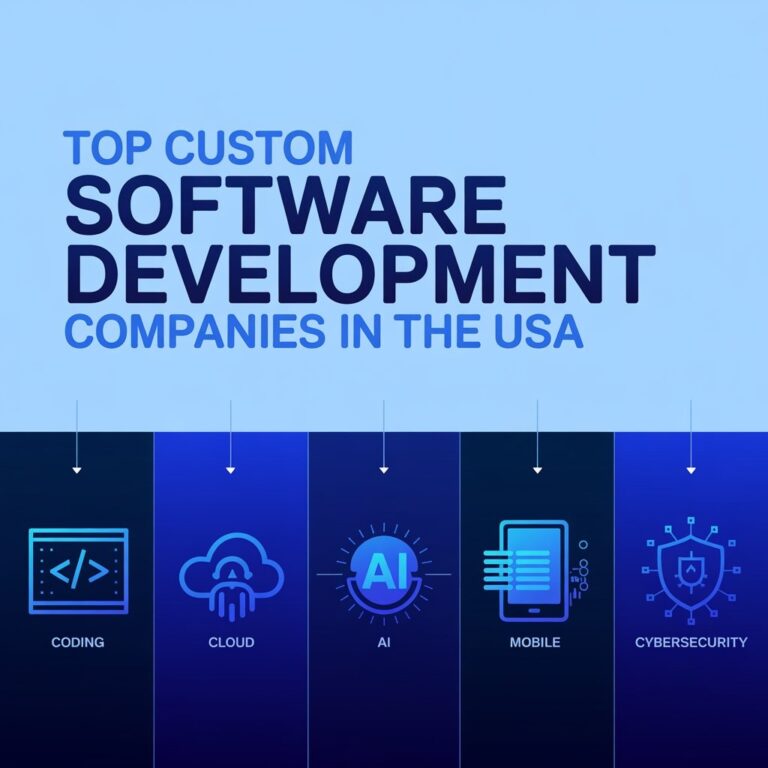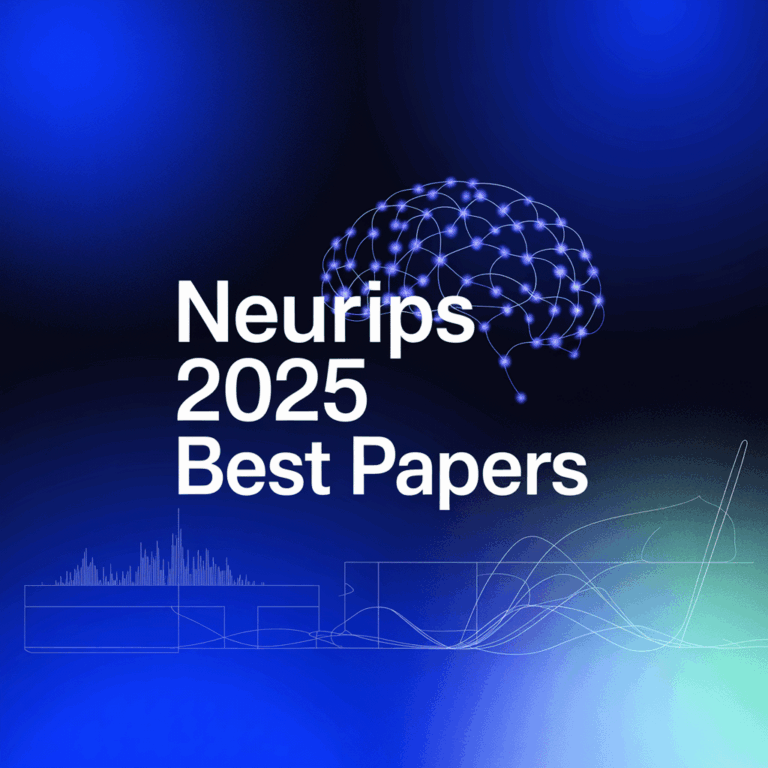Exploring AI Tools Tailored to Meet Diverse Student Needs for Academic Success
What if every student had a personal tutor who understood their unique learning style, provided instant feedback, and adapted lessons to their needs? It would have a tremendous impact on the academic landscape. This is what Artificial Intelligence is trying to do in education. Today, AI tools for students are not just enhancing traditional teaching methods; they are revolutionizing the way students learn, engage with material, and achieve academic success.
As education systems face a real challenge with the rising diversity in learning styles and academic needs, the role of AI becomes increasingly vital. These intelligent systems can analyze individual performance, offer personalized learning pathways, and provide resources tailored to each student’s strengths and weaknesses. The impact is profound—students aren’t just learning; they’re developing essential skills for their future.
In this article, we will explore the landscape of AI tools designed specifically for students, highlighting both paid and free options. We’ll discuss how these tools cater to various learning styles, support specific subjects, and address ethical considerations, paving the way for a more inclusive and effective educational experience.
I. AI for Students: Purpose and Impact
Key Statistics on Crisis Management
AI’s transformative impact on education is accelerating, propelling the market toward a $20 billion valuation by 2027. This meteoric rise, marked by a 40% CAGR, signals a seismic shift. Schools and institutions increasingly embrace AI-driven tools, thus revolutionizing learning with tailored experiences for each student. The future of education unfolds, powered by intelligent algorithms and adaptive technologies.
Customized learning pathways tailored to individual needs define AI’s core role in education. DreamBox Learning and Smart Sparrow exemplify this approach. They harness data analytics to fine-tune content delivery. As students progress, these platforms adapt, potentially boosting learning outcomes by 30%. This personalized support system ensures every learner has the tools to thrive, regardless of their starting point or pace.
AI’s classroom impact extends beyond academic support. It breaks barriers for diverse learners through speech recognition and translation tools. Educators overwhelmingly endorse AI’s potential to boost inclusivity, with 72% believing it enhances their ability to reach all students. From assisting those with disabilities to bridging language gaps, AI for students transforms education into a more accessible space. This technology revolution, backed by Deloitte research, cements AI as a cornerstone of modern, inclusive teaching practices.
Furthermore, AI in ed-tech has even more advantages, such as streamlining administrative tasks, thus allowing educators to focus more on teaching. By automating grading and scheduling, AI reduces the burden of non-instructional duties, which can significantly enhance the overall learning experience. To know more about the use cases of GenAI in education, go to our blog.
As the market for AI in education continues to grow, these technologies offer valuable opportunities for enhancing student achievement. Let’s take a peek at the best AI apps for students.
Purpose and Impact
$20 billion
is the projected valuation of the AI market by 2027
30%
is the potential improvement in learning outcomes that AI can achieve
72%
72% of educators believe that AI helps them reach all students better
II. Best Paid AI Tools for Students
In the rapidly evolving educational technology landscape, several paid AI tools stand out for their effectiveness in enhancing learning experiences. These tools offer advanced features tailored to meet the diverse needs of students, providing personalized support and fostering engagement.
Here are some of the best paid AI tools for students currently available:
1. DreamBox Learning
From struggling math students to confident problem-solvers, DreamBox Learning transforms K-8 education. This interactive platform adapts to each child’s needs and adjusts difficulty as they progress. Real-time data drives personalized lessons, thus keeping students engaged and challenged. Immediate feedback reinforces learning, while the engaging interface maintains interest. Research confirms DreamBox’s effectiveness: users consistently outperform peers in traditional programs. For educators seeking proven results, DreamBox stands out as a top choice in math education.
Features:
- Real-time adaptive learning paths tailored to individual student needs.
- Comprehensive progress tracking for educators to monitor performance.
- Engaging, game-like lessons that cover various math topics aligned with state standards.
Pricing:
DreamBox offers various pricing plans based on school or district licenses. Monthly subscriptions start at $12.95, with discounts for larger implementations.
Target Audience:
It is primarily aimed at K-8 students, teachers, and school administrators seeking to enhance math education.
2. Knewton Alta
Higher education faces a challenge: delivering personalized learning at scale. Enter Knewton Alta, an AI-powered tool for students. This platform assesses student knowledge, identifying gaps and strengths. It then adapts coursework, focusing on areas needing improvement. Instructors gain powerful analytics tools to track progress. A comprehensive content library enables tailored instruction. As an outcome, you get efficient, effective learning experiences customized for each student’s unique needs.
Features:
- Dynamic adaptive learning paths that change based on student interaction.
- Detailed analytics to help educators identify students needing additional support.
- A robust content library covering subjects like math, science, and humanities.
Pricing:
Knewton Alta offers institutional pricing, which generally starts at around $10.95 per student per month, with varying costs depending on the institution’s size and needs.
Target Audience:
It is designed for higher education institutions, including colleges and universities, as well as adult learners seeking personalized learning experiences.
3. Grammarly Premium
Beyond basic grammar checks lies Grammarly Premium, an AI-powered writing assistant. It offers advanced features for students tackling essays and research papers. Style suggestions refine the language. Tone detection ensures appropriate voice. Plagiarism checking maintains academic integrity. These tools foster improved communication skills and develop critical thinking as writing clarity increases.
Grammarly Premium doesn’t just correct; it educates and enhances. For students seeking to elevate their writing, it’s an invaluable resource. From simple assignments to complex research, this tool empowers students to learn how to craft compelling writing.
Features:
- Advanced grammar, punctuation, and style suggestions tailored to context.
- Tone detection to help adjust writing style for different audiences.
- Plagiarism detection to ensure academic integrity.
Pricing:
Grammarly Premium is available for $12 per month when billed annually, with a monthly plan priced at $30.
Target Audience:
Students of all levels, educators, and professionals seeking to enhance their writing quality across various formats.
4. Mathway
Mathway is an AI-based math problem solver that provides step-by-step solutions for a variety of math topics, from basic algebra to calculus. Students can input their math problems, and Mathway will generate detailed solutions and explanations, thus helping them understand the concepts behind the answers. This tool is particularly beneficial for students looking to enhance their math skills and prepare for exams.
Features:
- Instant problem-solving capabilities for a wide range of mathematical concepts.
- Detailed step-by-step solutions to promote understanding.
- Accessibility across multiple devices, including web and mobile applications.
Pricing:
Mathway offers a subscription service for $19.99 per month or $79.99 for a year.
Target Audience:
Students from middle school to college who need assistance with math homework and exam preparation
DreamBox Learning
Knewton Alta
Grammarly Premium
Mathway
III. Best Free AI Tools for Students
As educational technology advances, various free AI tools have emerged, providing valuable resources for students without the financial burden. These tools can enhance learning, support study habits, and facilitate collaboration. Here are some of the best free AI tools available for students in 2024:
I. Google Classroom
Google Classroom is a widely used AI platform that streamlines communication and collaboration between teachers and students. While primarily a management tool, it incorporates AI features to help educators distribute assignments, provide real-time feedback, and track student progress. The integration with other Google services enhances its functionality and makes it an essential tool for both in-person and remote learning.
Features:
- Streamlined communication and collaboration between teachers and students.
- Assignment management with real-time feedback capabilities.
- Integration with other Google services like Google Drive, Docs, and Sheets for seamless workflow.
Pricing:
Free for all users, including students and educators, with optional paid features available through Google Workspace for Education.
Target Audience:
K-12 schools, colleges, and universities looking for an efficient learning management system (LMS).
2. Khan Academy
Khan Academy is a free educational platform that offers a vast library of instructional videos, practice exercises, and personalized learning dashboards. With AI-driven features, it adapts content to suit individual learning styles and paces, allowing students to progress through subjects like math, science, and humanities at their own speed. The platform also provides data analytics for educators to track student engagement and performance.
Features:
- Extensive library of instructional videos and practice exercises across various subjects.
- Personalized learning dashboard that adapts to student progress and performance.
- Progress tracking for both students and teachers to monitor engagement and understanding.
Pricing:
Completely free, with no subscription fees or hidden costs.
Target Audience:
Students from elementary to high school and adult learners seeking supplementary educational resources.
3. Quizlet
Quizlet is a versatile study tool that allows students to create digital flashcards and interactive quizzes. The platform uses AI to suggest study materials and generate practice tests based on users’ learning habits. With its gamified approach, Quizlet makes studying more engaging and effective, helping students retain information through repetition and active recall.
Features:
- Customizable flashcards and study sets that can be shared with classmates.
- AI-generated practice tests and interactive quizzes based on user learning habits.
- Collaborative study options for group work and exam preparation.
Pricing:
A free basic version is available; Quizlet Plus offers additional features for $3 per month when billed annually.
Target Audience:
Students of all ages looking for an interactive and engaging way to study various subjects.
4. Microsoft OneNote
Students harness OneNote’s digital prowess to streamline their academic lives. This Microsoft app transforms note-taking and enables seamless organization and peer collaboration. Its AI-driven features elevate handwritten note searches and content management. From crafting study guides to tracking assignments, OneNote empowers learners. The app’s versatility shines in project teamwork, while its multimedia integration enhances the learning experience.
Features:
- Digital note-taking application that supports multimedia inputs like images, audio, and video.
- Collaboration features that allow multiple users to work on notes simultaneously.
- AI-powered search functionality for easy retrieval of information within notes.
Pricing:
Free for individual users with a Microsoft account; additional features are available through Microsoft 365 subscriptions.
Target Audience:
Students and educators seeking a versatile tool for organizing notes and collaborating on projects.
5. Canva for Educatdion
The AI tool for students, Canva for Education, empowers everyone with free, professional-grade design tools. Its AI-driven templates spark creativity, while user-friendly features simplify complex design tasks. Students effortlessly craft stunning presentations, infographics, and multimedia projects. This platform enhances visual communication skills, transforming ordinary assignments into eye-catching masterpieces. By streamlining the design process, Canva enables students to focus on content, ultimately elevating the quality of their academic work and presentations.
Features:
- Access to thousands of templates and design elements for creating presentations, infographics, and more.
- User-friendly drag-and-drop interface that simplifies the design process.
- Collaboration tools for group projects, allowing multiple users to work on designs together.
Pricing:
Free for educational institutions and students; premium features are available through Canva Pro for a fee.
Target Audience:
K-12 and college students, educators, and any individual looking to create visually appealing projects.
6. Socratic by Google
Socratic is an AI-driven app for students designed to assist with homework and studying. Using the smartphone camera, students can snap a picture of a question or problem, and Socratic will provide detailed explanations, resources, and step-by-step solutions. This tool is particularly useful for high school and college students who need quick, reliable help across various subjects.
Features:
- Instant access to explanations and resources for various subjects.
- User-friendly interface for easy navigation and interaction.
- Interactive features that encourage exploration of concepts and related topics.
Pricing:
Socratic is a free app, making it accessible to all students without any associated costs.
Target Audience:
High school and college students seeking quick homework assistance across multiple subjects.
Google Classroom
Khan Academy
Quizlet
Microsoft OneNote
Canva for Education
Socratic by Google
IV. AI Tools for Specific Subjects
and Skills
As educational needs become more specialized, various AI tools for students have been developed to enhance learning in specific subjects and skills. These tools leverage advanced algorithms and data analytics to provide targeted support. Thus, they become invaluable resources for students aiming to excel in particular academic areas. Below, we explore some of the most effective AI tools tailored for different subjects and skills.
1. STEM Education
STEM Education is all about combining science, tech, engineering, and math in a hands-on way. It’s not just about book learning—it’s about applying these subjects to real-world problems. By linking theoretical concepts to practical experiences, STEM education prepares students for the modern workforce and gives them the skills they need to thrive in a world driven by technology. This approach helps students develop creativity, collaboration, and adaptability—critical traits for success in the fast-evolving fields of science and tech.
1.a. Photomath
Photomath is an AI-driven app for students designed to help them understand and solve math problems. By simply scanning a math equation, students receive step-by-step solutions and explanations. Photomath supports a range of math topics, from basic arithmetic to calculus, making it an excellent resource for STEM students looking to improve their problem-solving skills.
Features:
- Instant problem-solving capabilities for a wide range of math topics.
- Step-by-step explanations to help students understand problem-solving techniques.
- User-friendly interface that allows for quick scanning of math problems using a smartphone camera.
Pricing:
A free version is available with limited features; Photomath Plus offers advanced features for $9.99 per month or $69.99 per year.
Target Audience:
Middle school to college students who need assistance with math homework and exam preparation.
2.b. Wolfram Alpha
Wolfram Alpha is a computational knowledge engine that provides answers to factual queries and complex problems in mathematics, science, and engineering. It can generate detailed calculations, graphs, and data analysis, making it an essential tool for students in STEM fields.
Features:
- Comprehensive computational knowledge engine that provides answers to factual queries and complex problems in mathematics, science, and engineering.
- Detailed calculations, graphs, and data analysis to support learning.
- Natural language input for easy access to information.
Pricing:
Free access for basic queries; Pro version available for $5.49 per month, offering additional features and advanced capabilities.
Target Audience:
High school and college students in STEM fields, as well as educators seeking computational resources.
2. Language Learning
In our interconnected world, language learning tools empower students to master new tongues swiftly and effectively. These tech-powered aids craft engaging, personalized experiences for all learning styles. They build vocabulary, refine pronunciation, and hone conversation skills through instant feedback and real-world practice.
By fostering cultural awareness, these tools prepare learners for multilingual settings. Students can confidently pursue academic and career goals while forging global connections. Interactive lessons adapt to individual needs, making language acquisition accessible and enjoyable. As barriers fall, these innovative tools pave the way for meaningful cross-cultural dialogue and understanding.
2.a. Duolingo
Duolingo is a popular language-learning platform that employs AI to personalize lessons based on user performance. The app adapts to learners’ strengths and weaknesses, offering exercises that improve vocabulary, grammar, and pronunciation in a variety of languages. Its gamified approach keeps students motivated and engaged.
Features:
- Adaptive learning paths tailored to individual performance in language acquisition.
- Engaging, game-like interface with rewards and challenges to motivate learners.
- Comprehensive practice across reading, writing, listening, and speaking skills.
Pricing:
A free version is available with ads; Duolingo Plus offers an ad-free experience and offline access for $6.99 per month when billed annually.
Target Audience:
Students of all ages interested in learning new languages, from beginners to advanced learners.
2.b. Babbel
Babbel is another AI-driven language-learning platform that focuses on conversation skills. With its structured lessons designed by language experts, Babbel provides students with real-life dialogue practice and cultural insights, making it ideal for learners aiming to communicate effectively in a new language.
Features:
- Structured lessons designed by language experts focusing on conversation skills and real-world dialogues.
- Speech recognition technology for pronunciation practice.
- Interactive exercises that encourage practical language use and cultural insights.
Pricing:
Babbel offers subscription plans starting at $33.30 per 6 months, with discounts for longer term commitments.
Target Audience:
Adult learners and students looking to improve their conversational skills in foreign languages.
3. Writing and Research Skills
AI writing tools for students revolutionize their performance, boosting academic skills at every stage. From brainstorming to editing, these advanced systems offer grammar checks, plagiarism detection, and contextual suggestions. They streamline research while granting access to extensive databases. Students using AI tools produce clearer, more original work while honing critical thinking. These skills prove invaluable in higher education and future careers. By embracing AI assistance, learners enhance their writing quality and analytical abilities, setting the stage for academic excellence and professional success.
3.a. Scrivener
Scrivener is a powerful writing software that employs AI to assist students in organizing their writing projects, from research papers to creative works. Its intuitive interface allows users to break down their work into manageable sections, making it easier to structure and edit.
Features:
- Organizational tools for managing large writing projects, from research papers to creative works.
- Built-in templates for different types of writing projects.
- Note-taking and research organization features that streamline the writing process.
Pricing:
One-time purchase of $59 for the desktop version, with a free trial available for evaluation.
Target Audience:
Students, writers, and researchers seeking a comprehensive tool for organizing and developing writing projects.
3.b. Ref-N-Write
Ref-N-Write empowers students to excel in academic writing. This AI tool for students analyzes text and offers tailored suggestions for improvement. First, it refines phrasing and grammar. Next, it enhances vocabulary with apt alternatives. Finally, it provides academic phrases and templates from its extensive database. Through this step-by-step process, Ref-N-Write transforms student work into polished, professional prose.
Features:
- Contextual writing assistance with suggestions for phrasing, grammar, and vocabulary.
- Extensive database of academic phrases and templates to enhance writing quality.
- Plagiarism detection to maintain originality in academic work.
Pricing:
The basic version is free; a premium version is available for a one-time purchase of $29.99.
Target Audience:
University students and researchers looking to improve their academic writing skills.
4. Test Preparation
AI tools for test prep are changing the game for students studying for standardized exams. Smart technologies make preparation more personalized and efficient. These tools use advanced algorithms to pinpoint individual strengths and weaknesses, creating customized study plans that adjust to each student’s learning speed. They offer a ton of practice questions, detailed explanations, and performance analytics and help students identify areas they need to work on and focus their efforts where it matters most.
Features like timed practice tests and instant feedback also mimic the actual test experience, boosting students’ confidence and readiness. This way, students can make the most of their study time, retain key concepts better, and ultimately score better on their exams — opening up new academic and career opportunities down the line.
4.a. Magoosh
Magoosh is an AI-driven test preparation platform that offers resources for standardized tests such as the SAT, GRE, and GMAT. The platform provides personalized study plans, practice questions, and video lessons tailored to students’ needs, making it an effective tool for improving test performance.
Features:
- Personalized study plans tailored to individual strengths and weaknesses for standardized test preparation.
- Extensive question bank with detailed explanations and video lessons.
- Performance tracking to help students monitor progress and adjust study strategies.
Pricing:
Subscription plans are $109 for a one-month access and $129 for a 6-month access to study materials for various standardized tests.
Target Audience:
High school and college students preparing for standardized tests such as the SAT, GRE, and GMAT.
Photomath
Wolfram Alpha
Magoosh
Babbel
Scrivener
Ref-N-Write
Duolingo
V. A List of Innovative AI Tools for Students
| Blind Spot | Illustrative Case | Company | Company | Company |
|---|---|---|---|---|
| Knewton Alta | Personalized Learning | Adaptive learning paths, performance analytics, content library | $10.95 per student/course/term | Higher education, adult learners |
| DreamBox Learning | Math | Real-time adaptive learning, progress tracking, interactive lessons | $12.95per student/month | K-8 students, teachers, administrators |
| Grammarly Premium | Writing Assistance | Grammar/style recommendations, tone detection, plagiarism detection | $12/month (annual plan), $30/month | Students of all levels, educators, professionals |
| Mathway | Math | Instant problem-solving, step-by-step solutions | $19.99/month or $79.95/year | Middle school to college students |
| Socratic by Google | Homework Assistance | Instant explanations, resources, step-by-step solutions | Free | High school and college students |
| Google Classroom | Learning Management | Assignment management, integration with Google services, communication tools | Free (optional paid features) | K-12 schools, colleges, universities |
| Khan Academy | General Education | Instructional videos, personalized learning, progress tracking | Free | Elementary to high school, adult learners |
| Quizlet | Study Tools | Customizable flashcards, AI-generated quizzes, collaborative study | Free; $3/month (Quizlet Plus) | Students of all ages |
| Microsoft OneNote | Note-Taking | Multimedia notes, collaboration, AI-powered search | Free; additional features with Microsoft 365 | Students and educators |
| Canva for Education | Design/Project Creation | Templates, drag-and-drop interface, collaboration tools | Free; premium features with Canva Pro | K-12 and college students, educators |
| Photomath | Math | Instant solutions, step-by-step explanations | Free; $9.99/month or $69.99/year (Photomath Plus) | Middle school to college students |
| Wolfram Alpha | STEM | Computation, data analysis, graphs | Free; $5.49/month (Pro version) | High school and college STEM students |
| Duolingo | Language Learning | Adaptive lessons, gamified learning, real-time feedback | Free; $6.99/month (Duolingo Plus) | Language learners of all levels |
| Babbel | Language Learning | Conversational practice, speech recognition, cultural insights | $12.95/month | Adult language learners, students |
| Scrivener | Writing | Organizational tools, templates, research management | $49 (one-time) | Students, writers, researchers |
| Ref-N-Write | Writing | Writing assistance, academic phrases, plagiarism detection | $29.99 (one-time) | University students, researchers |
| Magoosh | Test Preparation | Personalized study plans, practice questions, performance tracking | $129 for 6 months | High school and college students preparing for standardized tests |
VI. The Role of AI in Supporting Diverse Learning Styles
Classrooms are getting more diverse, so it’s crucial to understand and support the different ways students learn. Artificial Intelligence is key in making this happen by creating customized learning experiences for each student. AI tools use data and adaptive technology to support different learning styles, giving every student a fair shot at success.
1. Understanding Learning Styles
Learning styles refer to the preferred ways individuals absorb, process, and retain information. Common learning styles include:
Visual Learners:
Prefer to see and visualize information through diagrams, charts, and videos.
Auditory Learners:
Learn best through listening and engaging in discussions, lectures, and audio resources.
Kinesthetic Learners:
Thrive on hands-on experiences, learning through movement and tactile activities.
Recognizing that students may have multiple or blended learning styles is crucial. AI tools can adapt content delivery based on these preferences, creating a more engaging and effective learning environment.
2. Personalized Learning Experiences
Algorithms power adaptive learning platforms, tailoring content to individual students. Visual learners see more graphics, while auditory learners hear explanations. DreamBox and Knewton Alta analyze performance data, modifying lessons to match engagement styles. This AI-driven personalization optimizes education for diverse learning preferences, boosting comprehension through targeted approaches.
A study by the Bill & Melinda Gates Foundation found that personalized learning initiatives using AI can significantly improve student outcomes, especially for those who may struggle in traditional learning environments. By addressing diverse learning styles, AI ensures that all students can engage with the material in a way that resonates with them.
3. Enhancing Engagement and Retention
AI tools for students not only customize content but also employ gamification and interactive elements to enhance student engagement. For instance, platforms like Kahoot! use AI to create interactive quizzes and games that cater to various learning styles. In this way, they make learning fun and dynamic. By incorporating elements that appeal to visual, auditory, and kinesthetic learners, these tools promote active participation and improve information retention.
Research indicates that students are more likely to remember and apply concepts learned through interactive and engaging experiences. According to a study published in the National Library of Medicine, students who engage in active learning techniques supported by AI tools demonstrate higher retention rates compared to those who receive passive instruction.
4. Supporting Special Educational Needs
AI tools also play a vital role in supporting students with special educational needs. For example, speech recognition software can assist students with dyslexia by converting spoken words into text, while language translation applications can help non-native speakers access content in their preferred language. Benefits of using AI empower students who may face barriers in traditional learning environments, providing them with the tools they need to thrive.
VII. Addressing Challenges: Ethical Considerations and Accessibility
The growing presence of AI in education brings numerous benefits, but it also raises important ethical considerations and accessibility challenges. Addressing these issues is critical to ensuring that AI tools are used responsibly and inclusively for all students.
Here is the list of common ethical considerations:
Data Privacy and Security:
Privacy concerns loom as AI systems amass student data. Tailored learning tools gather personal details, necessitating strict adherence to data protection laws. Schools must transparently explain data practices, informing students and parents while safeguarding information from breaches. Clear communication about collection, usage, and security measures is crucial. Institutions bear the responsibility of protecting student privacy in this digital age of personalized education. If you want to protect your AI platform or software from cyber hacks, check out our blog on cybersecurity.
Bias and Fairness:
AI algorithms can unintentionally perpetuate biases if the data used to train them lacks diversity. This can lead to inequitable outcomes, with certain groups of students receiving inadequate support. To combat this, developers should continuously evaluate their AI systems for bias, incorporating diverse data sets and user feedback to improve fairness. By prioritizing equity, educational AI tools for students can better serve all learners.
Transparency and Accountability:
The complexity of AI technology can obscure how decisions are made, leading to skepticism among educators and students. Promoting transparency in AI operations is essential for fostering trust. Educational institutions should provide clear information about the functionalities of AI tools and establish accountability measures to ensure these technologies are used appropriately and ethically.
Let’s now take a look at the accessibility challenges.
Digital Divide:
Access to AI tools for students can vary significantly based on socioeconomic status. Students from disadvantaged backgrounds may not have the necessary devices or reliable internet access, creating barriers to utilizing these resources effectively. To bridge this gap, schools and governments should invest in technology access initiatives, providing students with the tools and training needed to succeed in an increasingly digital educational landscape.
Inclusive Design:
AI tools must be designed to accommodate the diverse needs of all students, including those with disabilities. Features such as voice commands, customizable interfaces, and support for assistive technologies can make these tools more accessible. Engaging with users who have disabilities during the design process can lead to more effective and user-friendly solutions.
Cultural and Linguistic Inclusivity:
Many AI tools primarily serve English-speaking populations, potentially excluding non-native speakers and students from various cultural backgrounds. Developers should strive to create multilingual resources and culturally relevant content, ensuring that all students can access and benefit from AI-driven educational tools.
To Sum Up
AI for students transforms education, tailoring lessons to each student’s needs. Personalized learning platforms adapt content dynamically, engaging diverse learners. Writing assistants empower students, boosting academic success. These tools support various learning styles, making education more inclusive and effective. As AI evolves, it will revolutionize how we teach and learn, putting students in control of their educational journey.
However, as we embrace these advancements, it is essential to address the ethical considerations and accessibility challenges that accompany AI implementation. Ensuring data privacy, mitigating bias, and promoting transparency are critical for building trust among educators, students, and parents. Furthermore, making AI tools accessible to all learners, regardless of their socioeconomic background or abilities, is vital for fostering an equitable educational environment.
As the educational landscape continues to evolve, a commitment to ethical practices and inclusivity will be paramount. By prioritizing these values, we can harness the full potential of AI to enhance learning experiences and prepare students for a future where technology plays an integral role in education. Ultimately, the goal is to create a supportive and effective learning ecosystem that empowers every student to thrive.







